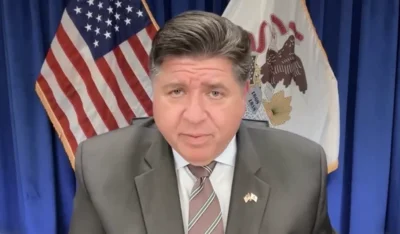Sameer Vohra, MD, JD, MA Director at Illinois Department of Public Health | Official website
Sameer Vohra, MD, JD, MA Director at Illinois Department of Public Health | Official website
The Illinois Department of Public Health (IDPH) and the Illinois State Water Survey (ISWS) are urging private well owners in Illinois to maintain their wells properly and conduct regular tests for potential contaminants.
While most private wells, when properly constructed and maintained, provide safe water for years, contamination can still occur due to improper construction, poor maintenance, or releases of contaminants into the well’s aquifer. Many contaminants cannot be detected by sight, taste, or smell. Well owners are responsible for maintaining their wells and regularly testing them to ensure the safety of their drinking water.
“Testing for contaminants is a simple and effective way to ensure that private wells are safe and do not pose a health risk,” said IDPH Director Dr. Sameer Vohra. “We encourage all private well owners to take the necessary steps to protect themselves and everyone in their households.”
Steven Wilson, a groundwater hydrologist with ISWS, emphasized the importance of testing: “We tell well owners almost every day that testing is an essential part of protecting their drinking water and in being a good steward of their water supply. Being informed by understanding how your well works, where your water comes from, and how to take care of your water system is the best way to protect your family’s drinking water and health.”
The ISWS houses the state’s well logs and supports Illinois well owners in understanding their groundwater resources. For 128 years, ISWS has provided science-based information through applied research, data collection, and outreach efforts aimed at improving well safety and protecting public health.
Potential contaminants in private wells include bacteria, nitrate/nitrite, metals, pesticides, volatile organic compounds (VOCs), and per- and polyfluoroalkyl substances (PFAS). Contamination may originate from manmade or natural sources and can cause various health effects ranging from developmental problems in children to cancer risks.
IDPH recommends annual testing for bacteria (total coliforms test) and nitrate/nitrite levels while advising metals testing every three years. Local health departments often provide affordable sampling kits for these tests. Commercial labs are available for metals testing; IDPH can assist in locating one.
Testing for VOCs, pesticides, or PFAS may be recommended if such contamination has been found near a well-owner's area. This type of testing is only available from commercial labs and can be costly. If concerned about possible contamination from these chemicals, IDPH can help assess whether testing is necessary.
If contaminants are detected at certain levels, treatment systems might need installation or alternate sources of water used for drinking, cooking, or bathing. IDPH offers free interpretation of test results along with guidance on reducing exposure to contaminants.
Even if no contaminants are found after testing, annual inspections should ensure that wells remain sealed and clear of debris such as yard waste. Inspections should check for damage to the well cap or cracks in the above-ground portion of the casing. Well-owners should also maintain septic systems by not disposing kitchen grease or household chemicals down sinks nor flushing personal hygiene products other than toilet paper; septic tanks should be pumped every three to five years.
ISWS recommends keeping a file containing information on well depth (available through local health departments), service records, emergency instructions, as well as contact details for local health departments and drilling contractors.
Both IDPH and ISWS strongly encourage participation in the Private Well Class program—a free self-paced course presented via email over ten weeks—to familiarize owners with basic science related to wells alongside best practices for maintenance.
For further information on contaminant sources or potential health effects caused by contaminated wells—and possible treatment methods—visit the Private Well Testing resources on the IDPH Toxicology Program webpage or contact them directly at 217-782-5830 or DPH.Tox@illinois.gov.
___






 Alerts Sign-up
Alerts Sign-up